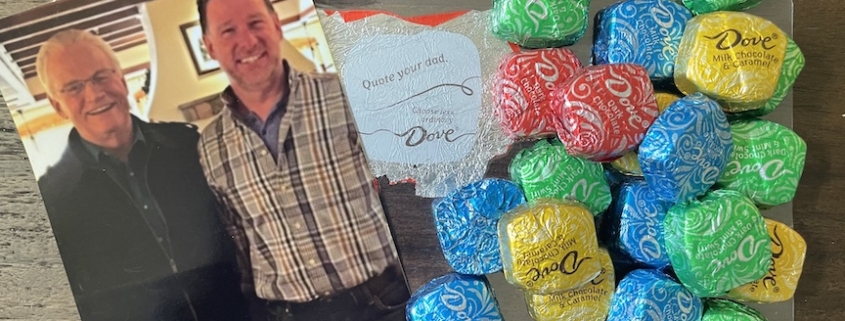Podcast, Season 2, Episode 3: Lessons On Leadership From the Life and Times of Ezra (part 3 – On Your Mark!)
In my thirty years of life and experience in leadership roles in Christian organizations, there are leadership lessons that I learned (and continue to learn) from the life of ministry to which God called me. Over that time, He taught me lessons based on stories, principles, and truths from the Bible that have been translated into personal application. This particular series of articles focuses on a set of those lessons drawn from the book of Ezra in the Old Testament, the same lessons that I have published in my latest book. This week, (along with the next two weeks, and in honor of the upcoming Olympic Games in Paris) we are starting the race of leadership. Today, in part 3, the topic is “On Your Mark!,” where we step up to the starting line by stepping back to recognize the necessity of being genuine – of consistently matching what you believe with how you live, and matching what you know with how you will act. This is the transcript of the podcast.
In the last two weeks, I introduced the series and said that we would be diving deeper into principles and practices that connect biblical truth with wisdom and applying them to the practice of leadership. The purpose of the series, and of the website as a whole, is to connect faith, wisdom, and leadership in a way that will help you grow in your leadership and make an impact. That starts with realizing that God has a plan and purpose that can be trusted, whether or not we can visibly see His hand in it. That plan is not contingent upon or predicated by my perfection. He doesn’t wait until you are perfect before choosing you as a leader or carrying out His plan. He has a purpose, and you get to be part of it. So my challenge was for you to look back over your life and experiences and identify where His sovereignty has been at work in the seemingly random circumstances. Look for times where something “just so happened,” and I think you will be able see how God was involved, and for a purpose. That will help you trust God’s activity in your life and in your leadership.
Now I am beginning a 3-week subset in this series in which I am laying the groundwork for effective leadership. I am using the analogy of the starting blocks in a race, when all the runners line up and get into position, and the starter yells, “On your mark, get set, go!” (I know that the starter actually fires a starter’s pistol, and doesn’t yell “go!”, but you get the idea.) Those three commands capture the ideas I will be discussing:
- “On Your Mark” – that’s all about getting to the starting line and in the right place. As a leader, that means getting yourself into the right frame of mind and equipping yourself for what is coming.
- “Get Set” – that’s all about getting into position in the right form, so that you are best prepared to start well. As a leader, that means performing the actions that set you up to be followed and trusted.
- “Go” – that’s when the starter’s pistol goes off and you start running. As a leader, that’s when the work begins as you start leading your people and your organization toward your mission, vision, or change.
Today, I’m focusing on the first command.
In the corresponding website article this week, I talked about my early experience as an organizational leader, an experience in which I did not first learn the right things I needed to know before undertaking the task of leadership I was facing. As a result, I had to deal with challenges and obstacles that were my own making. But I learned from that experience, and years later, when I arrived at a new organization, I started differently.
This time, my first priority was to learn where I was. I identified different groups of people among employees, customers, and stakeholders that I need to hear from. I started meeting with those people one at a time (in fact, this was probably how I spent at least half of my time in the first couple of months), asking questions, listening, probing, and taking notes. Over a little bit of time, I began to gain an understanding of where I was, and to develop a good picture of the history, culture, and challenges to be addressed. It was only after I had done that, that I was able to start preparing my plan of what I would need to do. I was able to prioritize the needs in the context of the organization and created a strategy of what I needed to do, in what order, and in what way. What I was able to do was to match what I learned and knew with what I needed to do, and that consistency would be crucial to my success.
In essence, I was able to get to the right starting lane before ever beginning the race. Before I determined what I needed to, what changes needed to be made, or what programs to drop or add, I needed to know the culture, community, history, and people. There was a lot that I needed to learn before there was a lot that I needed to do. So before I could start “doing,” I had to spend time “knowing,” so that my knowing and my doing could match in the way they needed to match.
That’s the lesson for your leadership. If you start doing before knowing, you can end up doing the wrong things, or even doing the right things in the wrong time, place, or way. Therefore, before you prepare a strategic plan or start running ahead with a great idea, first take some intentional time to learn. I once went to a new school and tried to use something to connect with students that had worked wonderfully in the previous school. But when I tried it in the new school, the students looked at me like I had three heads. It was a good idea in one environment, but not in another. I needed to learn that, and once I did, then I could find the right ways to engage with students in this new environment.
The bottom line is that if you are going to lead effectively, knowledge must precede action so that your actions match your knowledge. You need to know the people and place where you are, and understand how and why they operate. Only then can you strategically plan your action steps out of an informed awareness. As a leader who also follows Jesus, on a deeper and spiritual level that also means you need to know God before you can serve God. You need to understand who He is, His nature and character, and then you can act in a way that reflects and honors Him.
So, as you are getting ready to run your race of leadership (or run the next lap, or run your leg in the relay), remember the importance of knowing before doing. To get “on your mark,” you need to prepare and equip yourself for the race you are about to run, so that the race you run is the right one, and that means knowing God, knowing yourself, and knowing where you are. Only after that has happened are you ready to “Get Set!”





